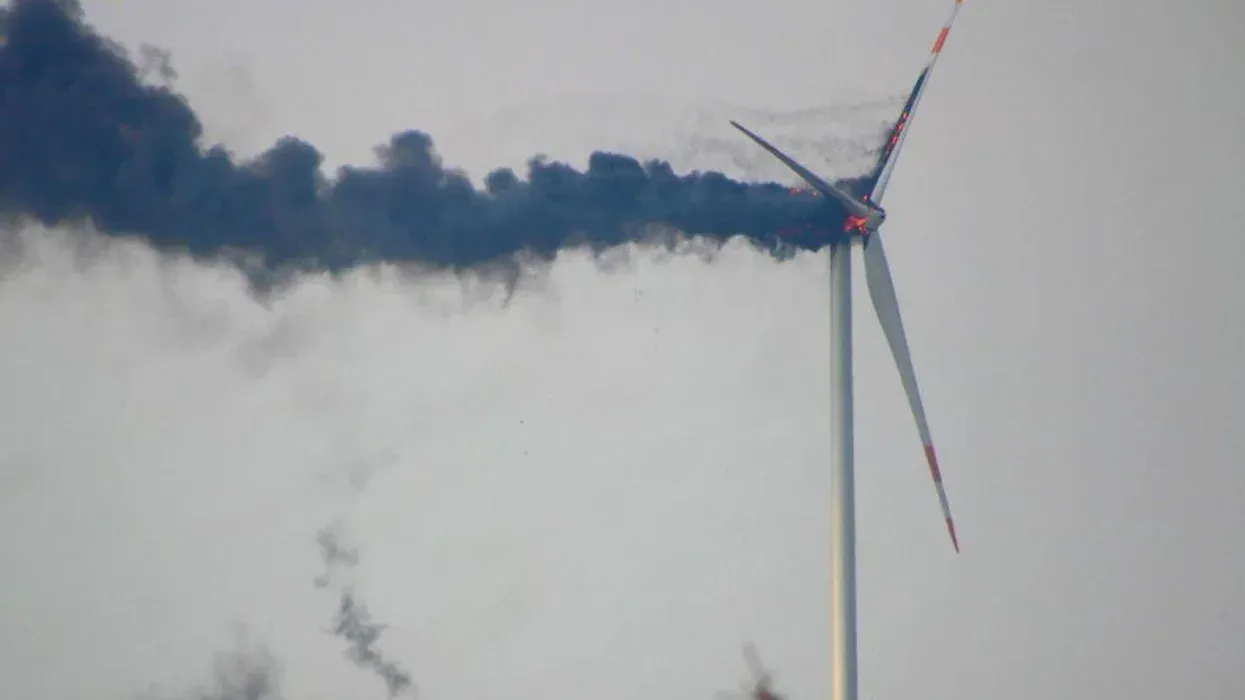
Photo by Mehmet Toktas/Anadolu Agency/Getty Images

The Swedish parliament determined last week that in order to ensure the country has a "stable energy system," it will have to abandon its goal of "100 per cent renewable electricity production by 2040."
To satisfy electricity demand, which is set to double to around 300 TwH by 2040, Sweden's right-of-center government announced June 20 that it would instead lean more heavily on nuclear energy and subsidize the construction of new nuclear plants — plants green-lit in 2016 but sidelined for fear they would be too expensive, reported Reuters.
The country, home to just over 10.5 million people, presently has three nuclear plants with six nuclear reactors in commercial operation. The state-owned Vattenfall aims to bring the tally up to eight reactors and refurbish extant facilities.
While Sweden's heightened nuclear focus is consistent with the country's commitment to shifting entirely off fossil fuels in a way that doesn't altogether cripple the nation, this bullishness on carbon-free nuclear power represents a significant about-face on atomic energy, which the country decided in a 1980 referendum to phase out.
Swedish support for nuclear energy is presently at a record high of 56%, up from 42% in 2022, reported Bloomberg. The jump in support has been attributed in part to the energy crisis that overwhelmed Europe in concert with the invasion of Ukraine and the revelation that renewable energies are not tenable as alternatives.
A 2021 study published in the journal Nature Communications indicated, "If future net-zero emissions energy systems rely heavily on solar and wind resources, spatial and temporal mismatches between resource availability and electricity demand may challenge system reliability."
The researchers indicated that "the most reliable renewable electricity systems are wind-heavy and satisfy countries' electricity demand in 72-91% of hours ... Yet even in systems which meet >90% o demand, hundreds of hours of unmet demand may occur annually."
These lost hours could prove too dear in a country where temperatures routinely drop below freezing several months out of every year.
Even Khashayar Farmanbar, the former energy minister for the defeated leftist Social Democratic Party, was cognizant of the country's strained energy situation, warning last August of "strains on the power system this winter," both in terms of outages and high prices.
The U.S. Department of Energy indicated that nuclear energy is the most reliable energy source on this side of the Atlantic Ocean. Each nuclear reactor typically produces the same amount of power as 431 utility-scale wind turbines or 3.1 million solar panels.
According to the Swedish government, roughly 75% of its electricity comes from hydroelectric (43%) and nuclear (31%) power. 16% of the electricity comes from wind power. Approximately 9% comes from combined heat and power plants, largely powered by biofuels. Solar energy has yet to crack 1% of total supply.
Finance Minister Elisabeth Svantesson of the Moderate Party said, "We need more electricity production, we need clean electricity and we need a stable energy system."
Since wind and solar won't cut it, "This creates the conditions for nuclear power," said Svantesson.
Net Zero Watch, an activist group that scrutinizes British and European net-zero emissions policies, stated that the "Swedish decision is an important step in the right direction, implicitly acknowledging the low quality of unstable wind and solar, and is part of a general collapse of confidence in the renewable energy agenda pioneered in the Nordic countries and in Germany."
Dr. John Constable, energy director at Net Zero Watch, stressed that energy stability for Sweden does not just amount to geopolitical security but societal stability.
"Living close to Russia focuses the mind, and the Swedish people not only wish to join NATO but also to ground their economy in an energy source, nuclear, that is physically sound and secure, unlike renewables which are neither," said Constable. "For the time being the UK government continues to live in a fantasy of their own making, but we are coming to the end of the green dream."
Like Blaze News? Bypass the censors, sign up for our newsletters, and get stories like this direct to your inbox. Sign up here!